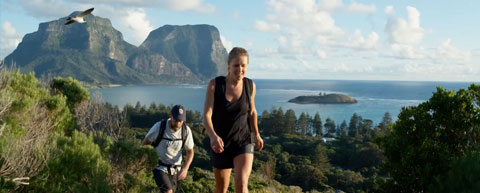Arkaba Walk: A Story Of Conservation and Rewilding In The Outback
The four-day Arkaba Walk in South Australia is an immersive story of the land: both the ancient Ikara-Flinders Ranges and a 63,000km former sheep station turned nature conservancy being painstakingly re-wilded.
We talk to Arkaba station owner Charles Carlow to find out more about the journey of this remarkable property, their work in sustainability and conservation, and what the future holds.
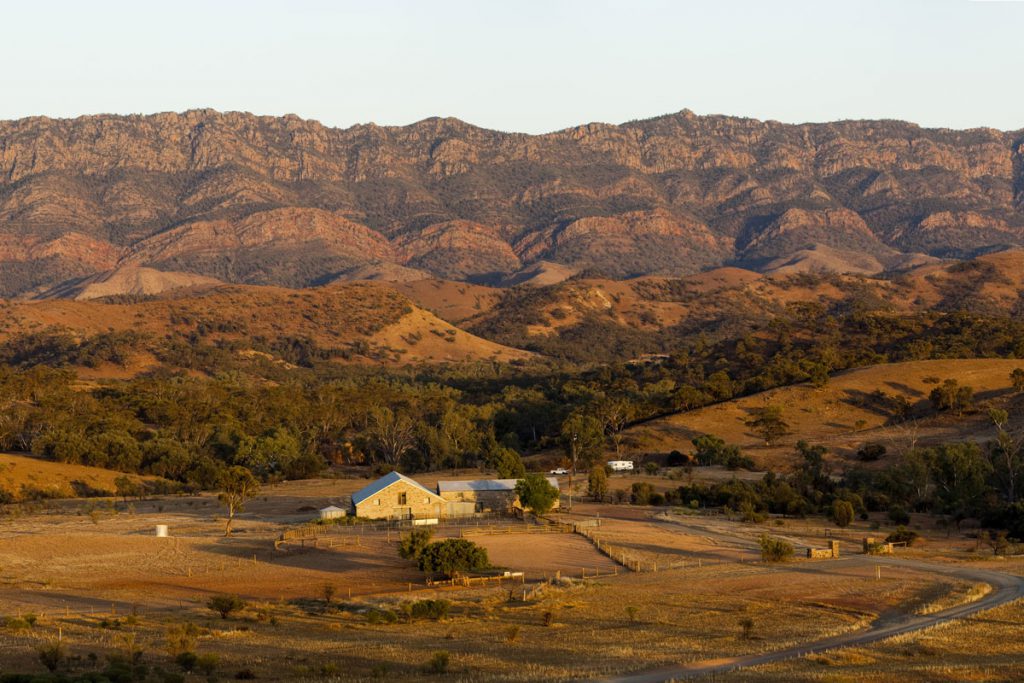
A desire for its business to operate in tandem with its environment is what underpins the philosophy behind The Arkaba Walk, showing off one of Australia’s most spectacular outback landscapes.
Rimmed by spectacular ochre cliffs, while native cypress forest, ancient red gums and hardy wildflowers blanket the undulating landscape, it’s hard to imagine the Arkaba Conservancy, 400 kilometres north of Adelaide, in any other form.
However, less than 10 years ago, this 63,000 km nature and wildlife conservancy in South Australia’s outback Ikara-Flinders Ranges was a working sheep station.
After 150 years of livestock grazing, in marginal semi-arid country, the decision was taken to remove livestock from the property and to focus on enabling the landscape to recover and native species to re-establish themselves.
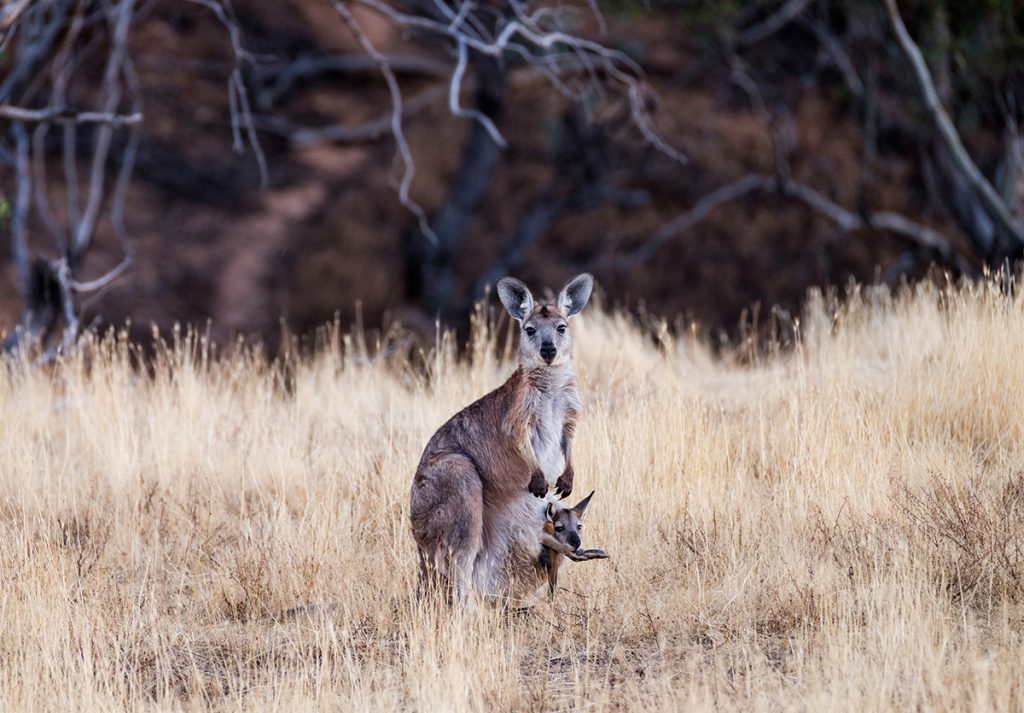
“The terrain at Arkaba meant that it was not the easiest of properties on which to run sheep,” says Arkaba’s current custodian, Charles Carlow, of the property’s former condition.
“Due to Arkaba’s rugged topography, some of the steeper and less accessible range country was not so impacted by livestock, and the previous owners had done a lot to reduce the impact of rabbits, however, the flatter sections were clearly heavily grazed.”
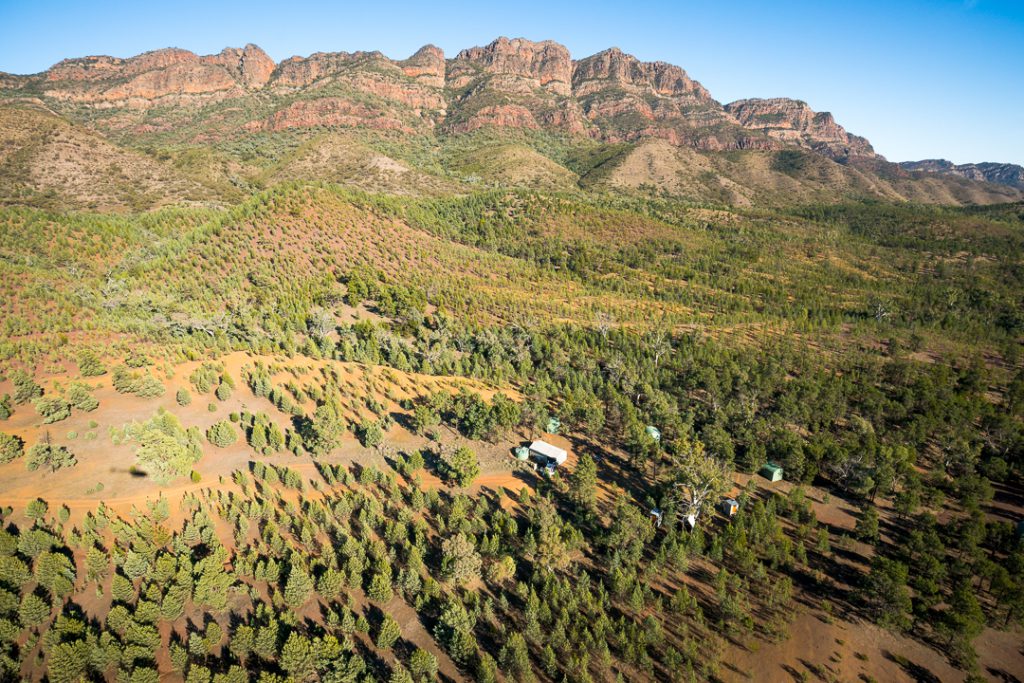
He was undeterred. Inspired by the outback station and the ancient ranges keeping guard over it, Charles and Wild Bush Luxury took on Arkaba for its tourism potential, not its agricultural one, driven by the desire to tend to the land and create unique and immersive, conservation focused experiences.
“Arkaba’s incredibly beautiful scenery is inspiring in itself but also provides the perfect backdrop to engage guests with the bush and the issues that threaten Australia’s biodiversity.”
“Aside from what we can do on the ground in keeping feral herbivores and predators out of the landscape, one of the best ways tourism can contribute to conservation is through connecting people to the bush and opening eyes and minds.”
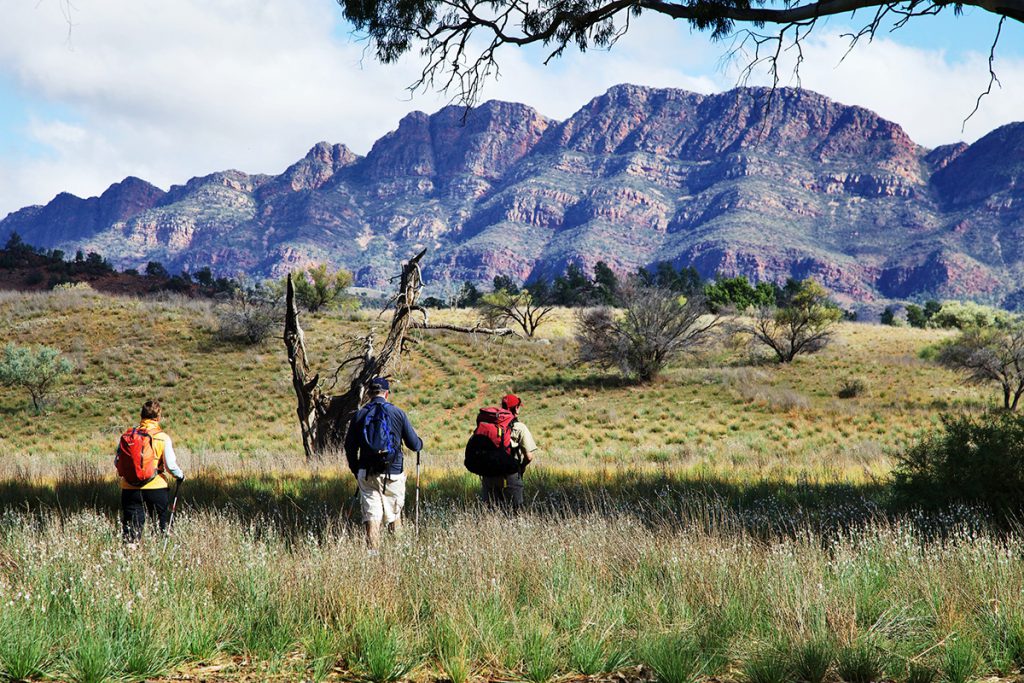
Fast forward to today, and Arkaba is a carefully protected slice of outback splendour – a perfect example of how tourism and conservation can work for the benefit of each other.
It’s a transformation that has earned the property its place in the Long Run, a collection of tourism businesses around the world that are focused on excellence in sustainable tourism and collectively shaping tourism as a force for good in the environment.
These days, Arkaba’s tourism arm is centred around the renowned Arkaba Walk: a fully-hosted, all-inclusive four-day walk where you not only witness the environment in recovery, but take an active role in its revival.
Covering 45 kilometres on foot in spectacular surrounds, this outback hiking adventure includes exclusive accommodation sleeping under the stars at off-grid walking camps, as well as a night at historic Arkaba Homestead – one of many hallmarks of the property’s pastoral heritage.
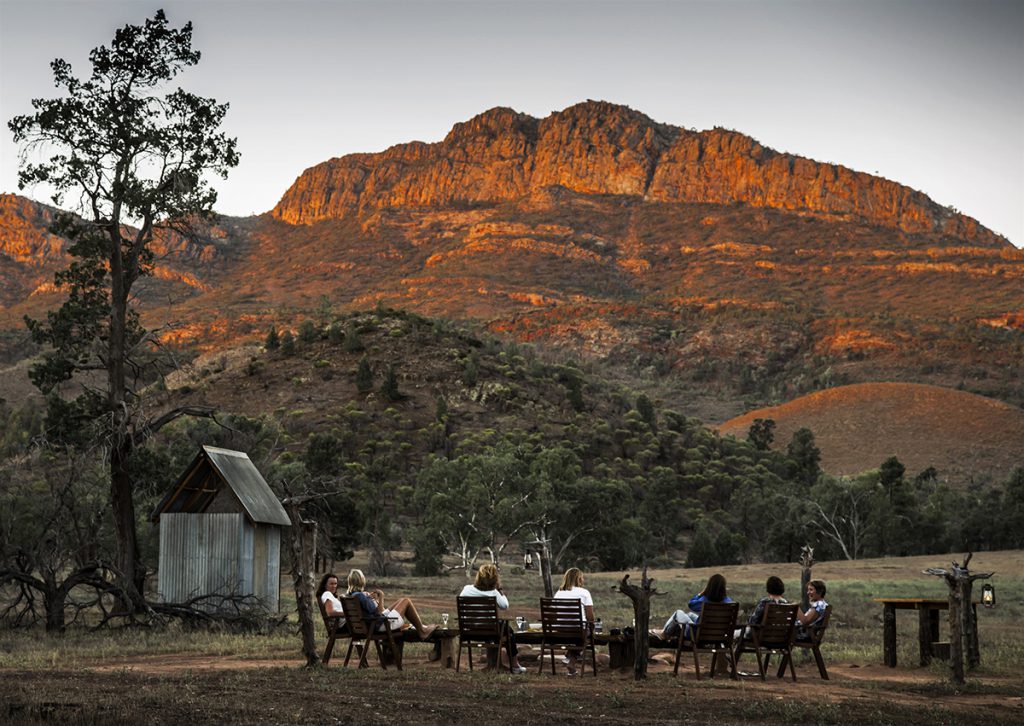
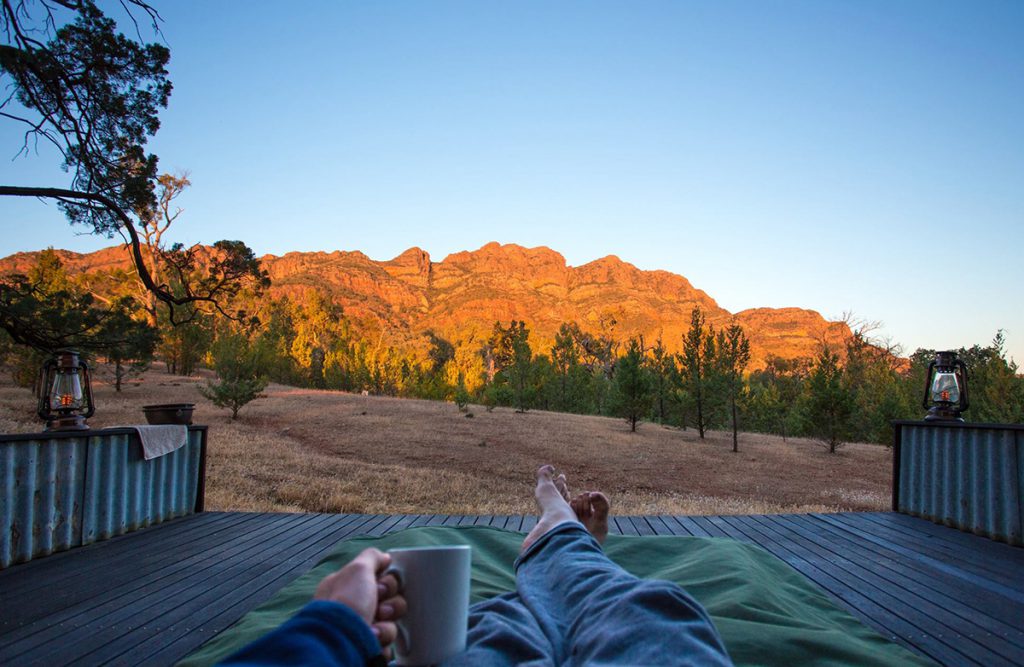
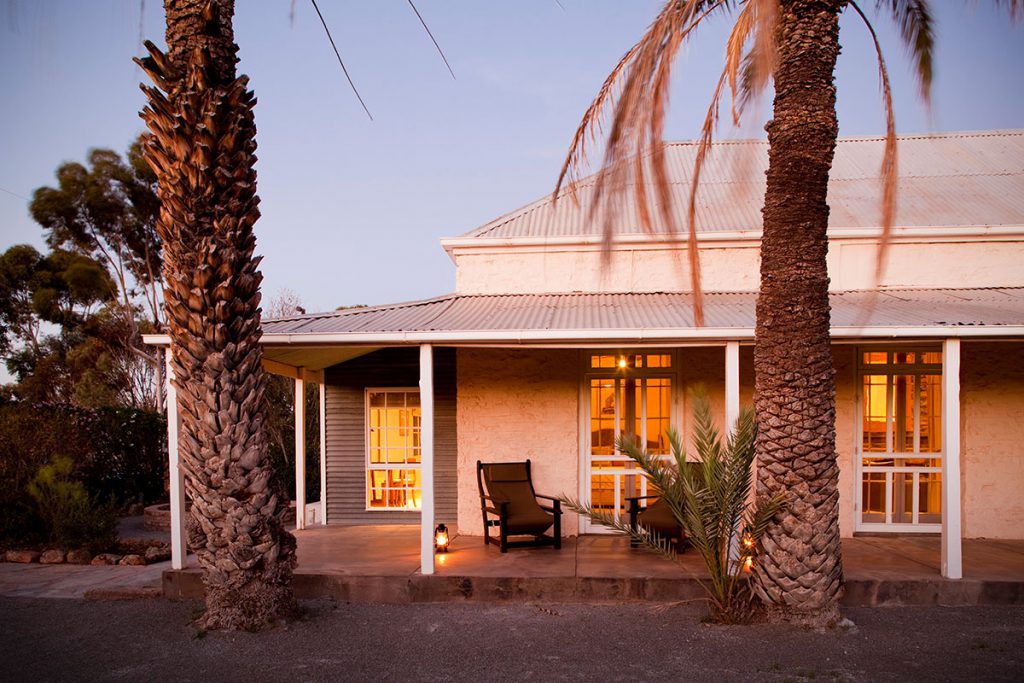
As Carlow declares, “our future is inextricably linked with the health of our environment,” guiding Arkaba’s mission to go beyond protecting the natural landscape, but to educate and connect guests with the power of nature through this unforgettable outback walking experience.
Restoring what was
In the decade since Wild Bush Luxury took on Arkaba, efforts to restore the property have been multifaceted, spanning re-vegetation to pest control and repopulation of native species.
Unsurprisingly, the station’s remaining sheep were a major focus at first, the last of which were removed in 2013. This saw native pioneer species start to reappear and the return in numbers of Red Kangaroos and Western Grey Kangaroos.
Ongoing efforts to eliminate other feral herbivores and predators, such as feral goats, cats, foxes and rabbits, has also had a significant impact on the recovery of the landscape, its vegetation and the wildlife that calls it home, especially the abundant birdlife, including Mulga parrots.
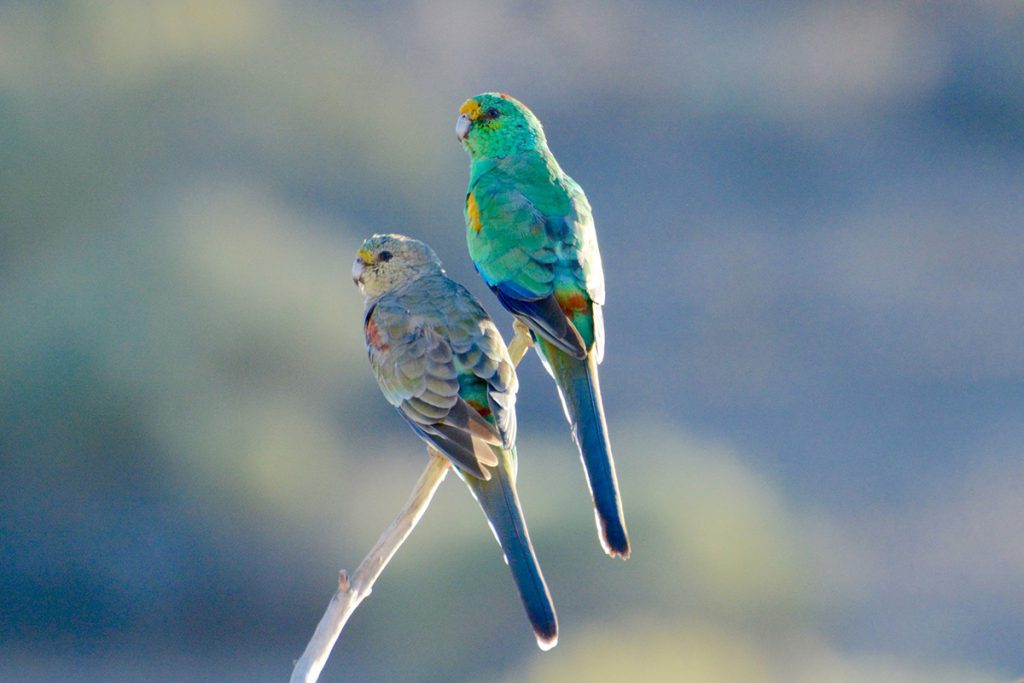
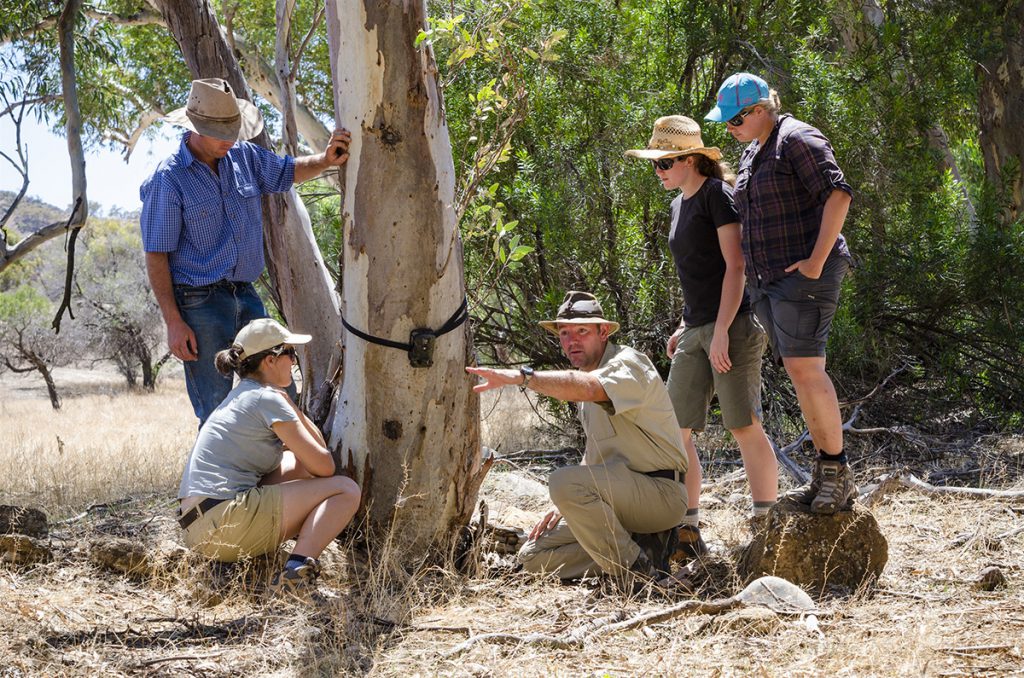
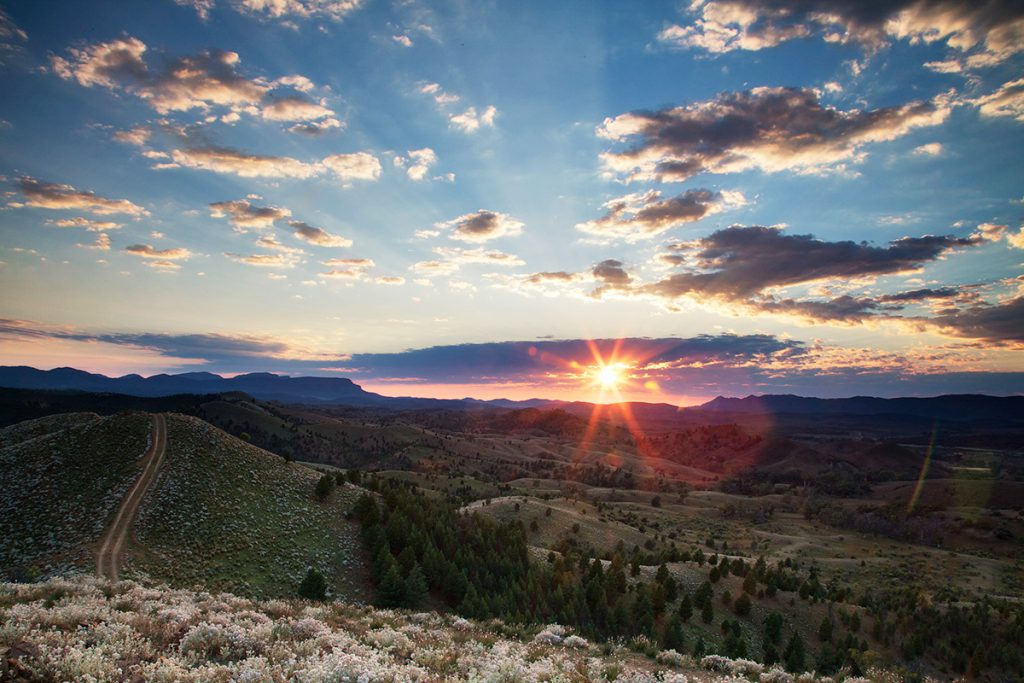
And it’s not just introduced fauna that has been a major focus in rehabilitating the property; in rewilding Arkaba, the removal of sheep, goats and rabbits from the landscape is helping arrest soil erosion, and allowing native trees, shrubs and grasses to regenerate naturally.
The rewilding has even extended to the creation of a native garden around the homestead in place of the water-thirsty European style lawn, integrating the lodge more naturally with the surrounding landscape.
Through bi-annual vegetation and spring surveys, it is clear that these environmental initiatives are generating a recovery in natural vegetation cover.
With the removal of feral predators, it is estimated that over the past ten years, millions of native animals and their offspring have been allowed to survive and reproduce and, in some cases, return to a landscape that they have been absent from for many years. This includes near-threatened Western Quolls and Brushtail Possums, as well as Yellow-footed Rock Wallabies and echidnas.
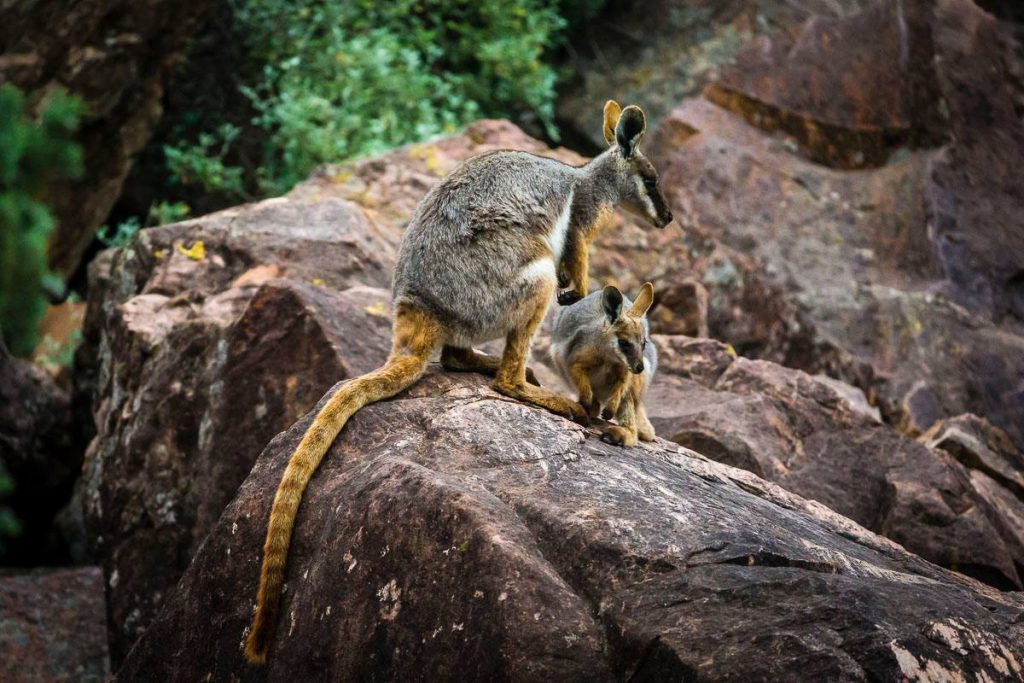
While 10 years’ work is a tiny window in the ecological history of the Flinders Region and there is a never-ending journey of recovery ahead, it is at least an optimistic sign for environmentalists and nature lovers alike.
Future proofing for the next generation
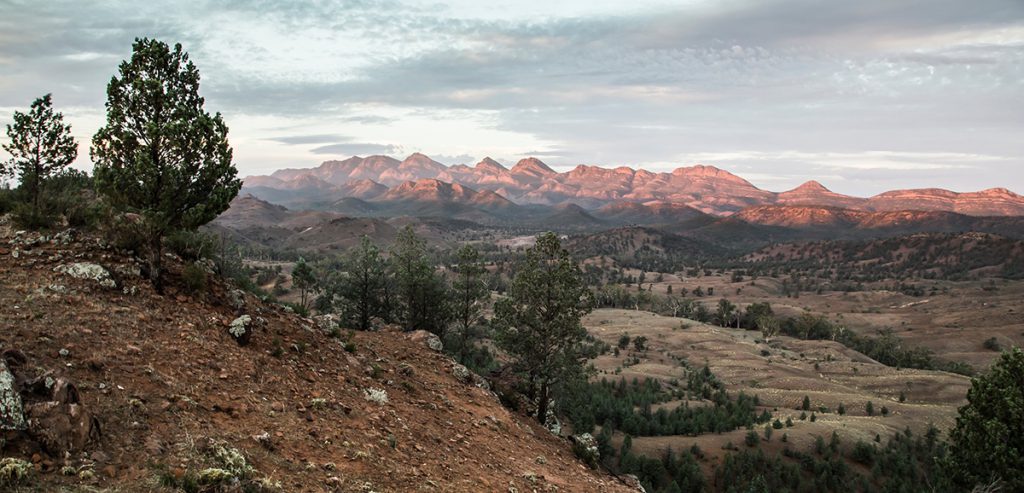
Beyond transforming Arkaba from sheep station to wildlife conservancy, the Arkaba team have worked tirelessly to ensure all current operations are considered with an environmental lens, ensuring the ecological footprint of The Arkaba Walk is as light as possible.
The environment is at the heart of every decision made: from choice of linen to zero plastic bottles; the siting of each walking camp to avoid any vegetation clearance and using native bush to provide privacy and natural cover; the off-grid camps, operated with minimal carbon emissions (and maximum connection to nature); and light provided by campfire or solar lanterns.
Food and wine served is sourced exclusively from local South Australian producers, ensuring guests experience a taste of the region, while achieving minimal food mileage and supporting the local community.
As Carlow always intended, “the vision behind the Arkaba Walk is to really connect our guests with the country – this is so much more effective when you’re out on foot and your senses are attuned to the surrounds.”
“Sharing our knowledge and passion helps immerse our guests in the finer nuances of the bush and to understand the connections in the landscape.”
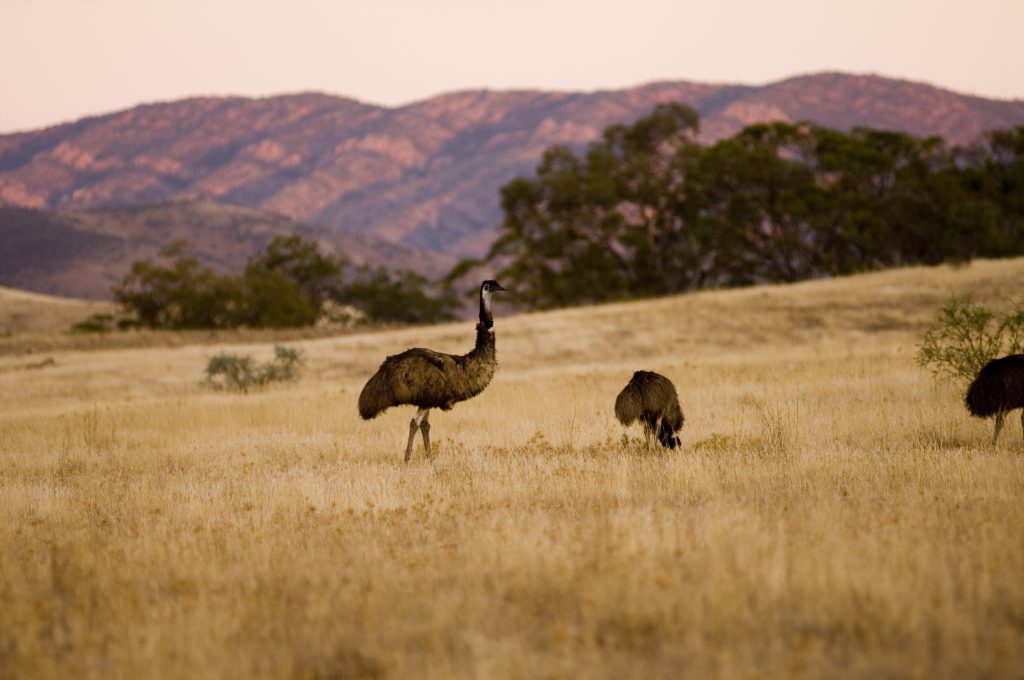
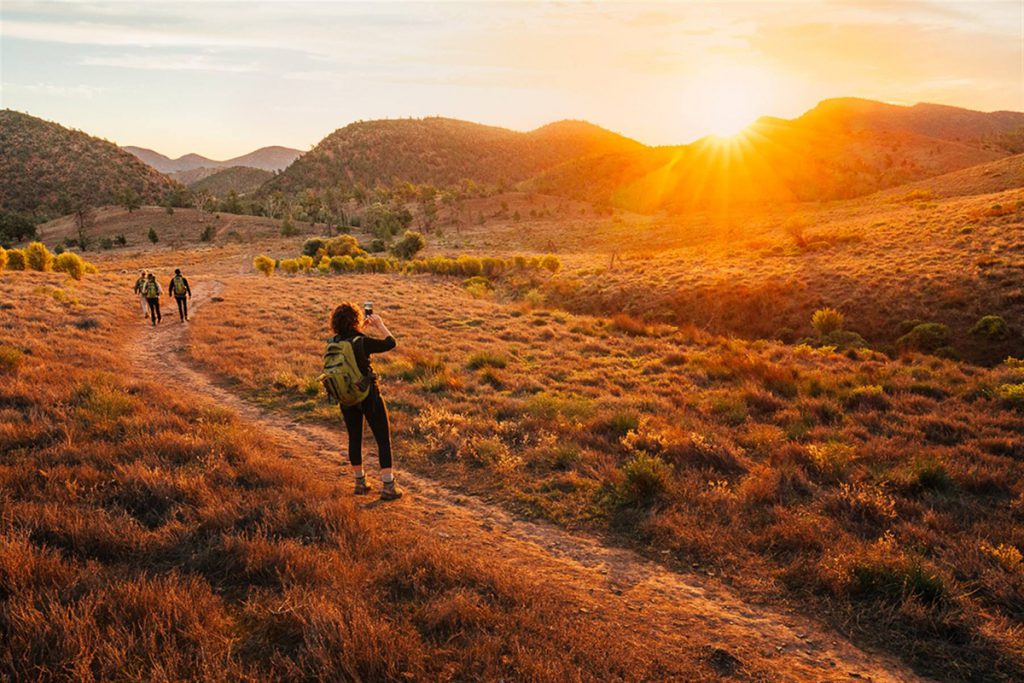
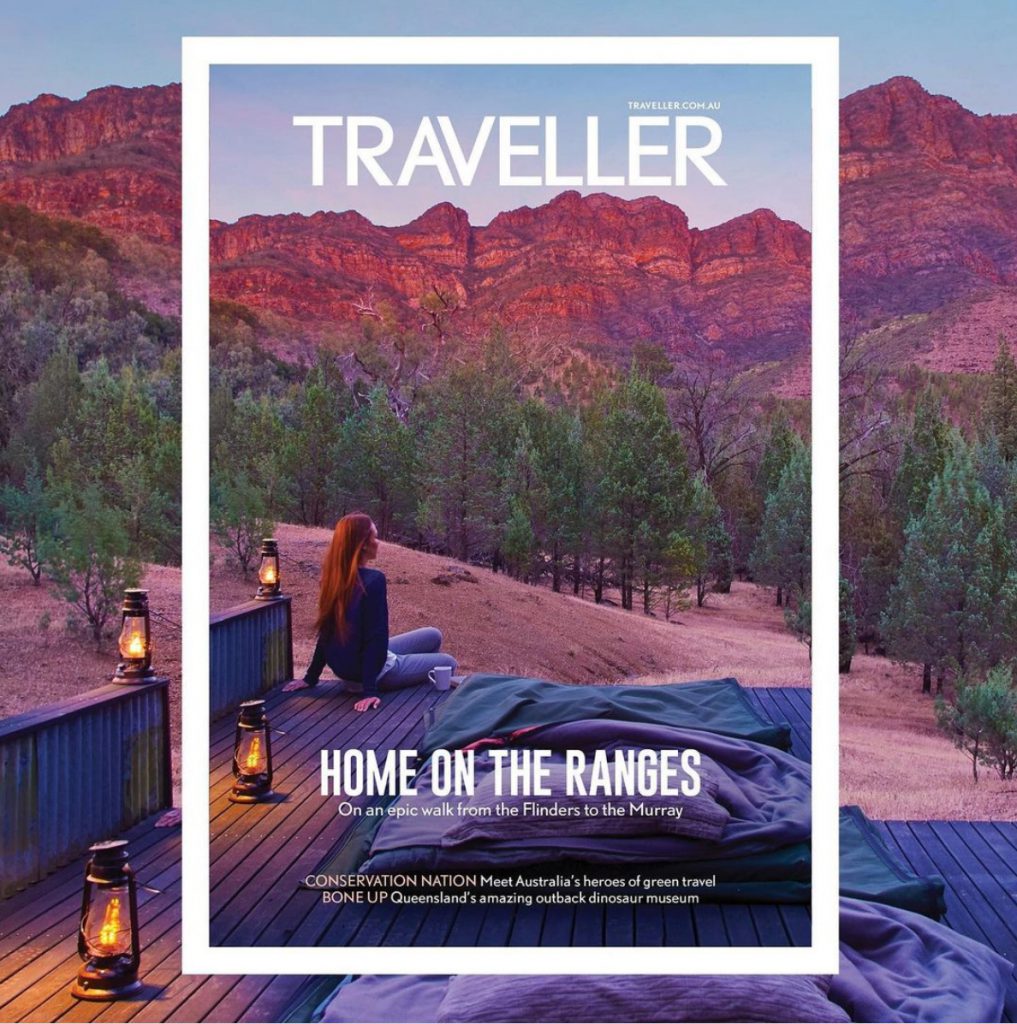
“Ten days ago, I’d have struggled to identify a single flower, bird call or animal track in either of these magnificent Australian landscapes. Now, thanks to this clever and considering pairing of walks, led by two sets of infectiously passionate and wonderfully knowledgeable guides, they feel like reassuringly familiar treasures.” Rob McFarland, Traveller, Sydney Morning Herald/The Age.
Ranges To River combines two of the Great Walks of Australia – Arkaba Walk and Murray River Walk – into one magical nine day, 80 km hiking adventure through some of South Australia’s most iconic and stunning outback landscapes.
Traveller Magazine (Sydney Morning Herald/The Age) recently came and experienced the double Great Walk, profiled in their July 2021 cover story.
Read the full Ranges To River Double Great Walk Of Australia article in Traveller
Interested in experiencing it for yourself?
Remaining dates of Ranges To River Double Great Walk in 2022 are:
June 23 – July 1, 2022
July 28 – August 5, 2022
August 24 – September 2, 2022
Get more information and book the Ranges To River Walk here

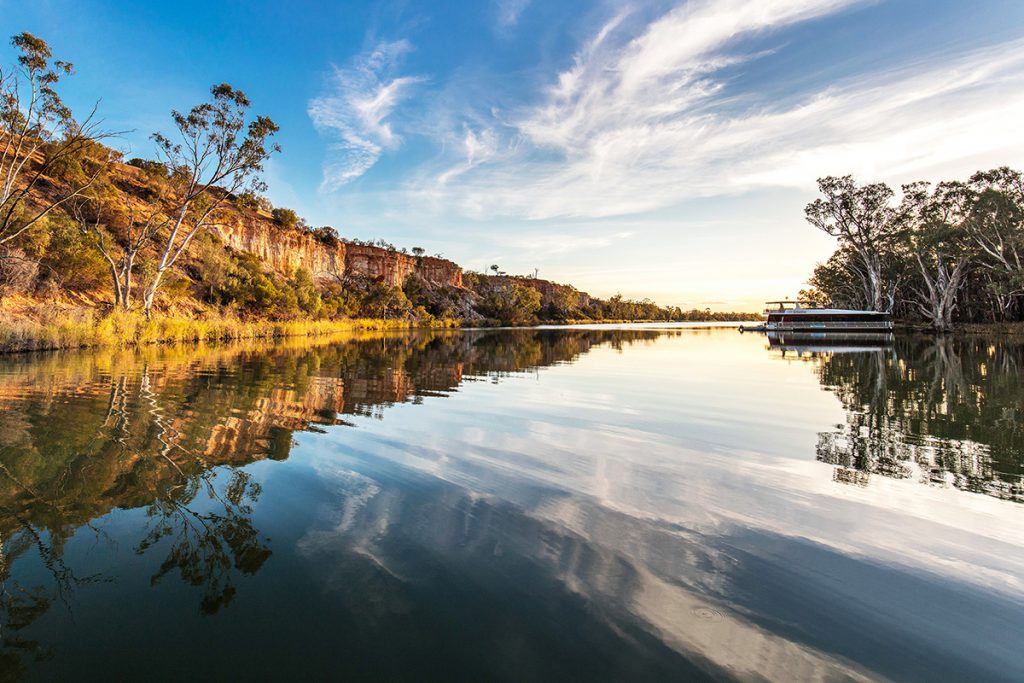
Book a Murray River Walk departing in the month of July 2019 and discover the warmth of the Riverland with their Winter Explorer Package…
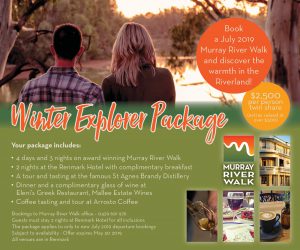
The Winter Explorer Package includes:
– 4 days and 3 nights on award-winning Murray River Walk;
– 2 nights at the Renmark Hotel with complimentary breakfast;
– A tour and tasting at the famous St Agnes Brandy Distillery;
– Dinner and a complimentary glass of wine at Eleni’s Greek Restaurant, Mallee Estate Wines; and
– Coffee tasting and tour at Arrosto Coffee
Price $2,500pp twin share (package inclusions total $300 additional value)
Terms and Conditions Apply – Bookings must be made to Murray River Walk office, please call 0429 691 976 or email info@murrayriverwalk.com.au . Guests must stay two nights at Renmark Hotel for all inclusions. The package applies only to new bookings for July 2019 departures. All venues are in Renmark, South Australia.
Book now or find out more about the Murray River Walk here.
In the second edition of our ‘Meet our Great Walks Guides’ series, we’re chatting to an expert guide from outback South Australia…
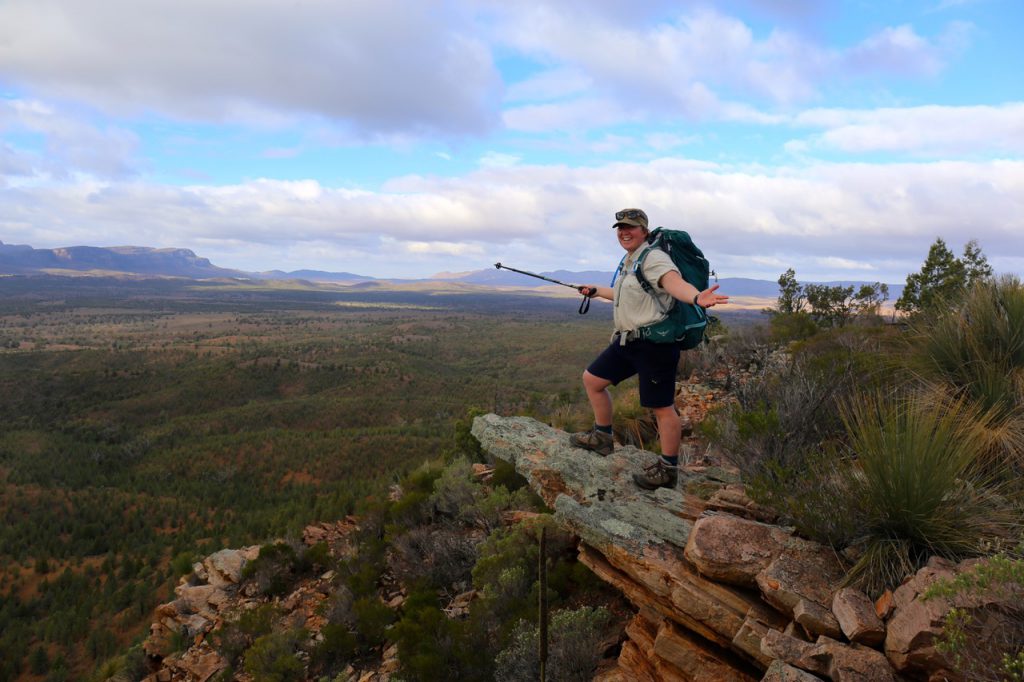
Introducing…
GUIDE: TORI
WALK: THE ARKABA WALK
What got you started with guiding?
I sort of fell into guiding after meeting one of Arkaba’s existing guides on an ecology field trip while
I was studying at uni. My tertiary study was all conservation/environmental management based, so
when he told me they had jobs going I jumped at it and learnt all my guiding in situ.
What do you find most interesting about working at Arkaba?
Conservation is key for me and I enjoy working in the field most of all. I also enjoy meeting people
from all over the world, and I like coming to work and knowing that no two days will be the same.
Is there something you love showing/doing with guests?
I really enjoy pointing out the ways in which the property is coming back in the absence of stock,
after such a long period as a sheep station. I think it’s important that guests understand that their
time on property is actively contributing to its regeneration and all of our other conservation efforts,
so I like sharing that with them. I’m also an avid birder and love when we get guests that share
that passion!
Finally, what do you think guests love most about their stay at Arkaba?
I think most guests enjoy the chance to relax and take in a distinctly unique environment. The
excellent food and wine probably don’t go astray either!
Keen to experience Tori’s life first hand? Take a look at The Arkaba Walk itinerary or find out next departure dates here.
